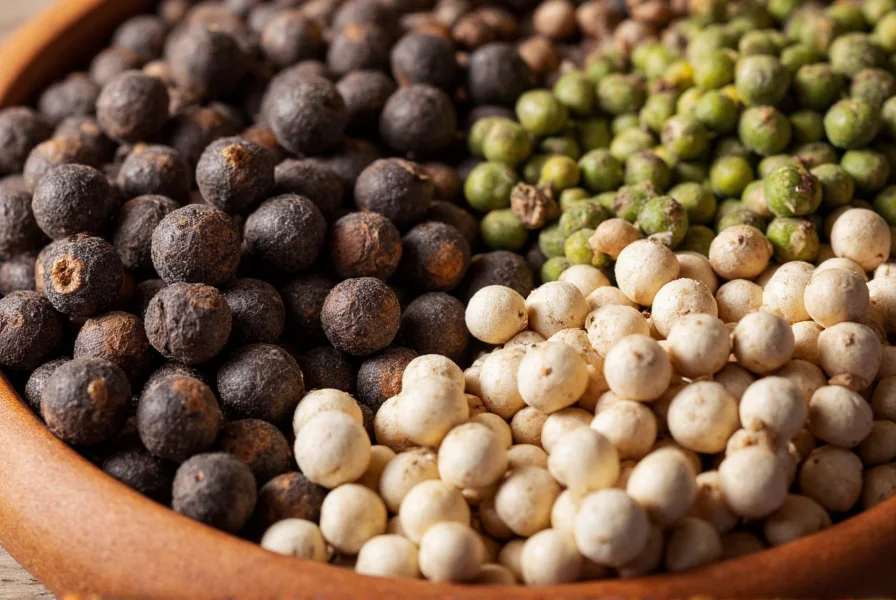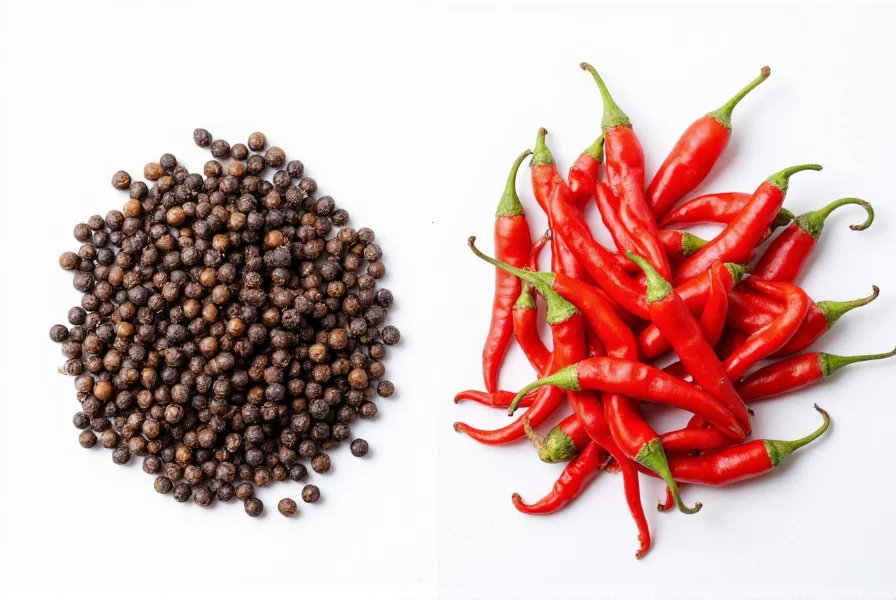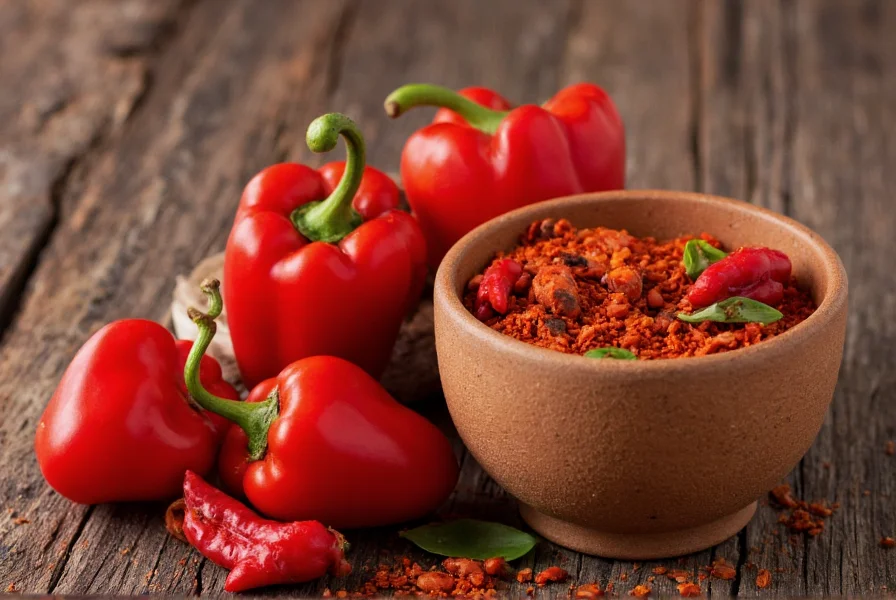When exploring the question is pepper a spice, many people encounter confusion due to the multiple meanings of the word "pepper." Understanding this distinction is essential for proper culinary classification and usage.
What Defines a True Spice?
A spice is defined as a natural substance used to flavor, color, or preserve food, typically derived from the non-leafy parts of plants—including seeds, fruits, roots, bark, or flower buds. This contrasts with herbs, which come from the leafy, green parts of plants.
The key botanical distinction lies in the plant part used:
| Category | Plant Source | Examples |
|---|---|---|
| Spices | Seeds, roots, bark, fruits (non-leafy) | Black pepper, cinnamon, cloves, ginger |
| Herbs | Leafy, green parts | Basil, parsley, cilantro, mint |
Black Pepper: The Quintessential Spice
Black pepper (Piper nigrum) originates from the Western Ghats of India and has been traded globally for millennia. The peppercorns we use are actually the dried unripe fruit of this flowering vine.
Here's how different pepper varieties are processed:
- Black peppercorns: Sun-dried until they shrivel and turn black
- White peppercorns: Soaked to remove the outer layer before drying
- Green peppercorns: Preserved unripe berries
- Pink peppercorns: From a different plant family (not true pepper)

Addressing Common Pepper Confusions
The term "pepper" creates significant confusion because it refers to completely different plant species:
Black Pepper vs. Bell Peppers
This is the most frequent point of confusion when determining is black pepper a spice or herb. Bell peppers (Capsicum annuum) belong to the nightshade family (Solanaceae), while black pepper comes from the Piperaceae family. Botanically, bell peppers are fruits (specifically berries), not spices.
Chili Peppers: Fruits Used as Spices
Chili peppers are technically fruits but are used as spices in culinary applications due to their pungency and flavoring properties. When dried and ground, they function as spices despite their botanical classification.

Historical Significance of Pepper as a Spice
Throughout history, black pepper has been one of the world's most valuable spices. In medieval Europe, it was so precious it was used as currency—earning the nickname "black gold." The spice trade routes established primarily for pepper significantly shaped global commerce and exploration.
The historical importance of pepper as a spice cannot be overstated. Ancient Romans used it extensively, and it was a major driver of the Age of Exploration as European powers sought direct sea routes to India to bypass middlemen.
Why the Classification Matters
Understanding why is pepper considered a spice helps in proper culinary application. Spices like black pepper:
- Generally have more intense, complex flavors than herbs
- Often benefit from being added early in cooking to release flavors
- Typically come from tropical climates (unlike many herbs)
- Have higher concentrations of essential oils
This knowledge helps home cooks and professional chefs alike make better decisions about when and how to use pepper in recipes, addressing the practical implications behind the question is pepper a spice.
Pepper in Modern Cuisine
Today, black pepper remains the world's most traded spice. Its versatility spans virtually all culinary traditions, from French sauces to Indian curries to Chinese stir-fries. The compound piperine gives black pepper its characteristic pungency and also enhances the absorption of other nutrients—a property recognized in both traditional medicine and modern nutritional science.
When exploring the pepper spice classification, it's worth noting that freshly ground pepper offers significantly more complex flavor than pre-ground versions, as the essential oils evaporate quickly after grinding.
Frequently Asked Questions
Is black pepper technically a spice?
Yes, black pepper is technically a spice. It's made from the dried fruit (peppercorns) of the Piper nigrum plant, which meets the botanical definition of a spice as a seasoning derived from non-leafy parts of plants. This distinguishes it from herbs, which come from leafy plant portions.
Why is there confusion about whether pepper is a spice?
The confusion stems from the word "pepper" referring to multiple unrelated plants. Black pepper (Piper nigrum) is a true spice, while bell peppers and chili peppers belong to the Capsicum genus. Though chili peppers are botanically fruits, they're often used as spices when dried. This naming overlap creates the common question: is black pepper a spice or herb.
What makes something a spice rather than an herb?
The distinction lies in the plant part used. Spices come from non-leafy portions of plants (seeds, roots, bark, fruits), while herbs come from the leafy, green parts. Black pepper qualifies as a spice because it's made from dried peppercorns (the fruit of the Piper nigrum plant), not from leaves.
Are all types of pepper considered spices?
No, not all "peppers" are true spices. Black, white, and green peppercorns (from Piper nigrum) are spices. However, bell peppers and chili peppers are fruits from the Capsicum genus. Pink peppercorns come from a different plant (Schinus molle) and aren't botanically related to true pepper, though they're used similarly in cooking.
Does the classification of pepper as a spice affect how it's used in cooking?
Yes, understanding pepper's classification as a spice informs its culinary use. Like other spices, black pepper's essential oils are best released when heated, making it suitable for adding early in cooking processes. Its classification as a spice rather than an herb explains why it maintains potency better than leafy herbs when cooked for extended periods, addressing practical considerations behind the question is pepper a spice.











 浙公网安备
33010002000092号
浙公网安备
33010002000092号 浙B2-20120091-4
浙B2-20120091-4